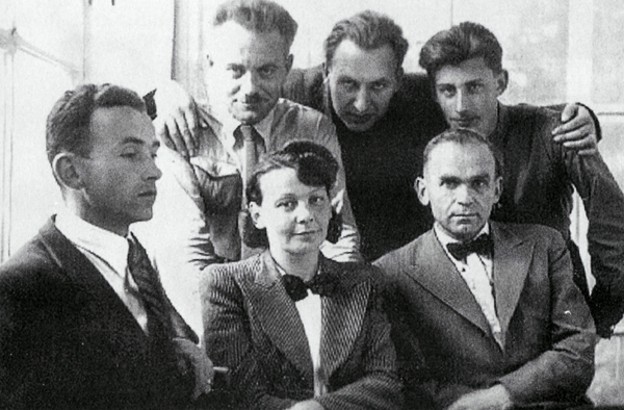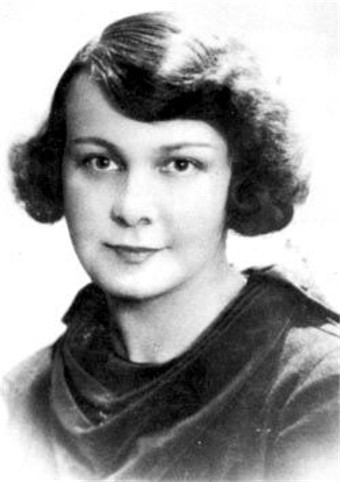Teliha, Olena
Teliha, Olena [Теліга, Олена], b 21 July 1907 in Saint Petersburg, Russia, d 21 February 1942 in Kyiv. Poet, publicist, and nationalist leader; daughter of Ivan Shovheniv. Teliha emigrated with her parents to Czechoslovakia in 1922, where she studied at the Ukrainian Higher Pedagogical Institute in Prague. The intellectual milieu of the Ukrainian émigrés after the failure of the Ukrainian struggle for independence (1917–20) and especially the Ukrainian student life in Prague in the 1930s had a profound influence on Teliha's development. She married Mykhailo Teliha and moved to Warsaw (1929–39), where she taught at a Ukrainian school and was active in the Ukrainian community. From 1933 she contributed to the nationalist journal Vistnyk (Lviv). In Cracow from 1939 to 1941, she headed the literary-artistic society Zarevo and together with Oleh Olzhych worked in the cultural sector of the Leadership of Ukrainian Nationalists. With the outbreak of the war between Nazi Germany and the Soviet Union she moved to Lviv and then left with the OUN expeditionary groups for Kyiv in 1941. There she became head of the Writers' Union and editor of the literary weekly Litavry (Kyiv). When the Nazi regime closed down Litavry's parent newspaper, Ukraïns’ke slovo (1941), and replaced it with the pro-regime Nove ukraïns’ke slovo, Teliha refused to co-operate. She was arrested by the Gestapo and shot, together with other Ukrainian nationalists.
Teliha's poems were published mainly in the nationalist journal Vistnyk and were collected posthumously in Dusha na storozhi (The Soul on Guard, 1946). That collection was augmented by her prose and republished as Prapory dukha (The Banners of the Spirit, 1947), and then Olena Teliha: Zbirnyk (Olena Teliha: collection 1977). Her poems also appeared in English, translated and edited by O. Prokopiv, as Boundaries of Flame (1977). Firmly rooted in the nationalistic poetry of the interwar period, her lyrical poetry draws strength more from sincerity than from formal sophistication and reflects the oxymoron of ‘soft firmness’ that Teliha espoused for the contemporary Ukrainian woman, whom she saw as integral to and an equal partner in the struggle for Ukraine's independence. In February 1992 a cross was erected to her memory in Babyn Yar in Kyiv.
Oleh Shtul, Danylo Husar Struk
[This article originally appeared in the Encyclopedia of Ukraine, vol. 5 (1993).]
.jpg)
.jpg)

.jpg)

.jpg)